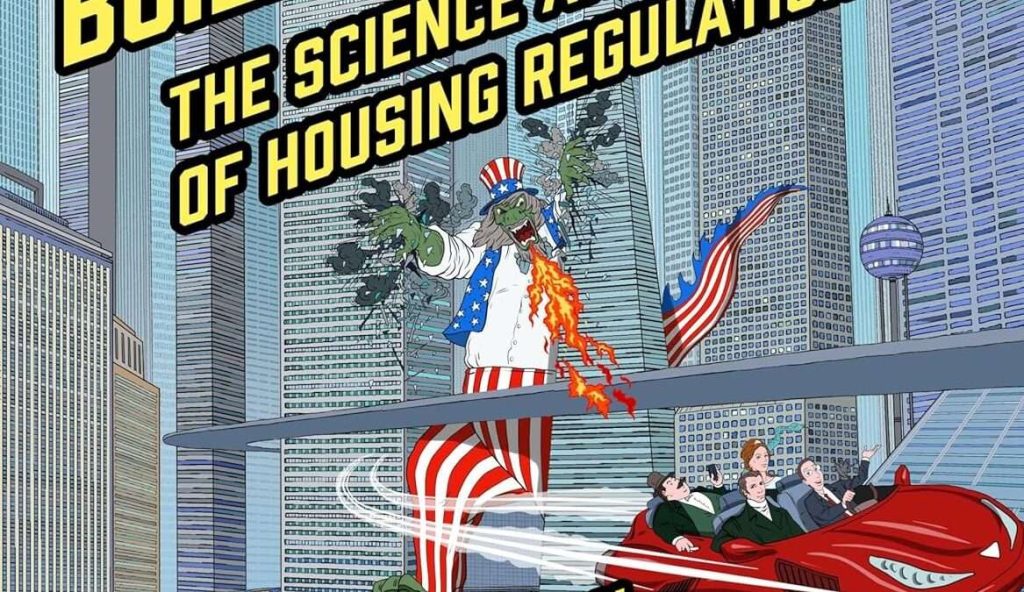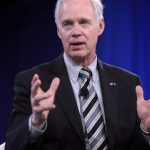Every author has to make choices. What’s worth including? What isn’t? When I finally read the published version of my new Build, Baby, Build: The Science and Ethics of Housing Regulation, I was proud of my choices. False modesty aside, the book — a non-fiction graphic novel — looks great, and manages to cover almost every important angle.
With one inexcusable omission: I forgot to call for the privatization of government-owned land.
What makes this omission so inexcusable? Because I’ve known for many years that the share of land owned by U.S. federal and state governments is shockingly high. I just forgot about the issue until it was too late to alter the book.
To see the magnitude of government land ownership, check out these three fine maps.
First, here’s federal land as a percentage of total state land area:
Second, here’s state land as a percentage of total land area:
Finally, here’s combined government ownership:
Here is what I wish I said about this topic:
Government ownership of land is a massive missed opportunity for humanity. If the government auctioned off this vast expanse to the highest bidders, land prices would dramatically fall, and business could finally start unearthing and developing its untold riches for human betterment. Yes, most government intervention in the housing market is state and local. But if you count government ownership of land as “intervention” — as you should — the federal government’s role suddenly looks a lot bigger. Which in turn means that the feds could move housing policy in a sharply more free-market direction without involving any other level of government. Privatization would also let the federal government drastically slash its staggering debt — which now stands at 120% of U.S. GDP! State government debt loads and land ownership are both far lower. But mass privatization of state land would plausibly allow New York, Florida, Pennsylvania, Michigan, Wisconsin, Minnesota, and perhaps a few other states to to pay off everything they owe, then fund permanent, sustainable tax cuts with the revenue raised. The obvious objection to privatization is that government owns the land that nobody else wants. While auctioneers could make a lot of money selling off the Grand Canyon and other famous wonders, most of the land is too remote and desolate to warrant a positive price. If you look at the U.S. map, however, the preceding objection seems hollow. History, not economics, explains almost all of the variance in government ownership. Land that entered the union prior to the rise of the ideology of conservationism overwhelmingly ended up in private hands. Then John Muir, Theodore Roosevelt, and other proto-green ideologues arrived on the scene to preach the anti-impact moral standard. They were wildly successful, managing to keep somewhere between 30% and 90% of all land in late-joining states in government hands.
West Texas is a mighty refutation of the “government owns the land that nobody else wants” story. If you drive from Amarillo to Lubbock to San Angelo to San Antonio, you’ll witness hundreds of linear miles of the most desolate land in the entire country. Yet roads aside, almost every square foot of this “wasteland” is privately owned! What do private owners do with this seemingly worthless territory? Besides oil drilling and a little farming, it looks like they’re playing the long game. The population of Texas is rapidly rising, and will ultimately justify their investment. What would privatization do to our glorious national parks? Dramatically improve their management. As I keep saying, free markets do the good things that sound bad, and government does the bad things that sound good. In the current regime, government grossly underprices campgrounds and other facilities, and severely restricts their further expansion. This sounds good, but it’s bad. Private owners, in contrast, would try to balance natural beauty against human convenience. This sounds bad, but it’s good. The point of a park is to maximize total long-run human enjoyment, not avoid impact at all costs.
Large-scale privatization of government land is a wonderful opportunity for domestic charter cities. Want to start a new U.S. population center? Buy a few hundred square miles of uninhabited federal land and try your ideas. “Build it and they will come” overstates, but visionary billionaires like Elon Musk could plausibly build new metropolises from scratch.
I’m not crazy. I know that full privatization of government land is highly unlikely to happen. If even 1% were privatized over the next decade, I’d be amazed. My point is privatization is a massive missed opportunity. And since Build, Baby, Build is all about massive missed opportunities, I really wish I’d included it. If I ever publish an expanded second edition, I definitely will.
The post *Build, Baby, Build*: My Most Inexcusable Omission appeared first on Reason.com.







